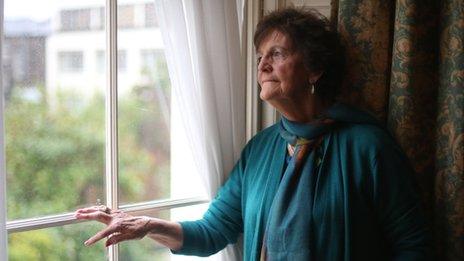Irish adoption inquiries rise after Tuam and Philomena stories
- Published
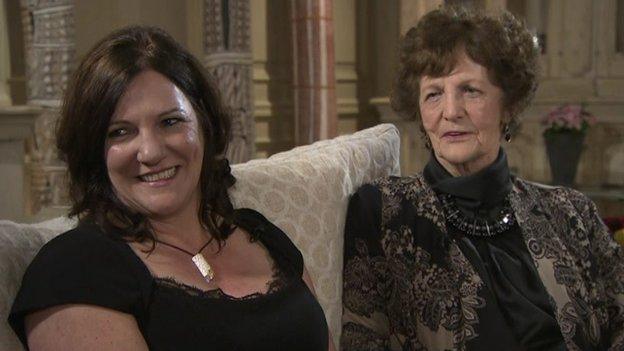
Philomena Lee (R) and her daughter Jane Libberton are campaigning to help reunite Irish families separated by adoption, after Mrs Lee spent 50 years searching for her adopted son
High-profile stories about unmarried Irish mothers have led to a significant rise in attempts by birth parents and adopted children to find each other.
The Adoption Authority of Ireland has seen a dramatic increase in inquiries.
It has coincided with the release of the film, Philomena, and publicity over the burial of almost 800 children at a mother and baby home in Tuam, Galway.
A spokesman for the authority said it believed the increase was linked to recent media coverage of both stories.
The number of inquiries the organisation received last month was three times the figure it dealt with during the same month last year.
The Irish Independent said there were 183 inquiries in June 2014, compared to 61 in June 2013.
The Adoption Authority of Ireland is the only organisation in the Republic of Ireland that operates an adoption contact register, where people can give their details if they want to be contacted by their birth parents or adopted children.
The number of people who registered their details for their relatives to get in touch more than doubled over the period, rising from 31 in June 2013 to 88 last month.
The National Adoption Contact Preference Register was launched in May 2005.
The register is a voluntary measure, as adopted children do not have an automatic right to information about their natural parents in the Republic of Ireland.
The authority's head of operations, Anthony Abbott-King, said: "There has to be some correlation between the release of the film, the emergence of the Tuam babies story and the rise in the number of people contacting us.
"Logic would suggest that the publicity surrounding both stories has something to do with the increase."
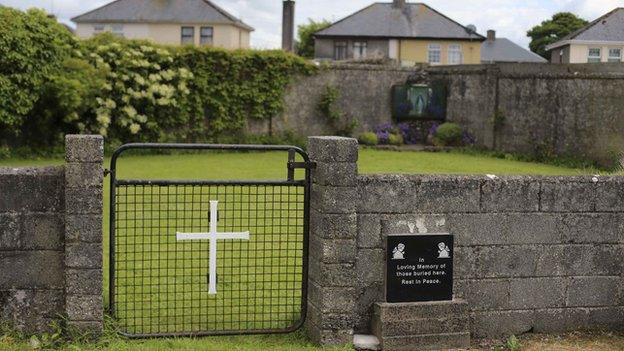
The bodies of hundreds of children were buried in the grounds of the Bon Secours home for unmarried mothers in Tuam, County Galway, from 1925 to 1961
The Tuam babies revelations and the true-life story of adoption campaigner Philomena Lee made headlines around the world within the last few months.
Both stories have forced the Republic of Ireland to confront its past treatment of unmarried mothers and their babies, many of whom were separated through forced adoption.
Last week, the Irish government appointed a judge to chair an inquiry into all church-run mother and baby homes within the state.
The inquiry was ordered after a researcher said the bodies of hundreds of children had been buried in the grounds of the home run by the Bon Secours Sisters between 1925 and 1961.
County Galway death records showed that most of the children buried in the unmarked grave had died of sickness or malnutrition.
Philomena Lee's 50-year search for her adopted son was made into an Oscar-nominated film, starring Dame Judi Dench and Steve Coogan.
As a teenage single mother in the 1950s, she was forced to give her three-year-old boy up for adoption, and the child was taken to the United States.
Following the success of the film, Mrs Lee and her adult daughter, Jane Libberton, have launched a campaign to help reunite Irish families who have been separated by adoption.
The Philomena Project calls for the release of more than 60,000 adoption files held by the Irish state, churches and private agencies.
Mrs Lee took her campaign to the Vatican, where she met Pope Francis.
- Published29 September 2014
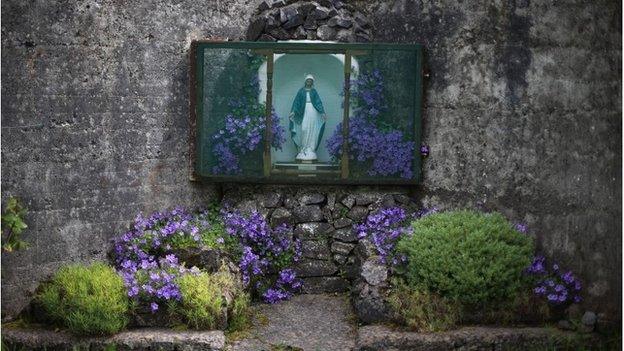
- Published16 July 2014
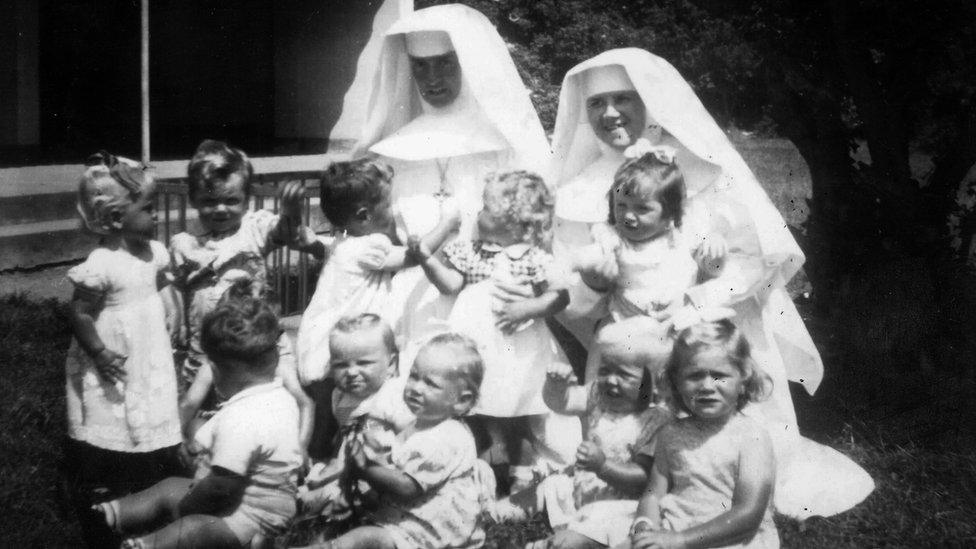
- Published25 January 2014
